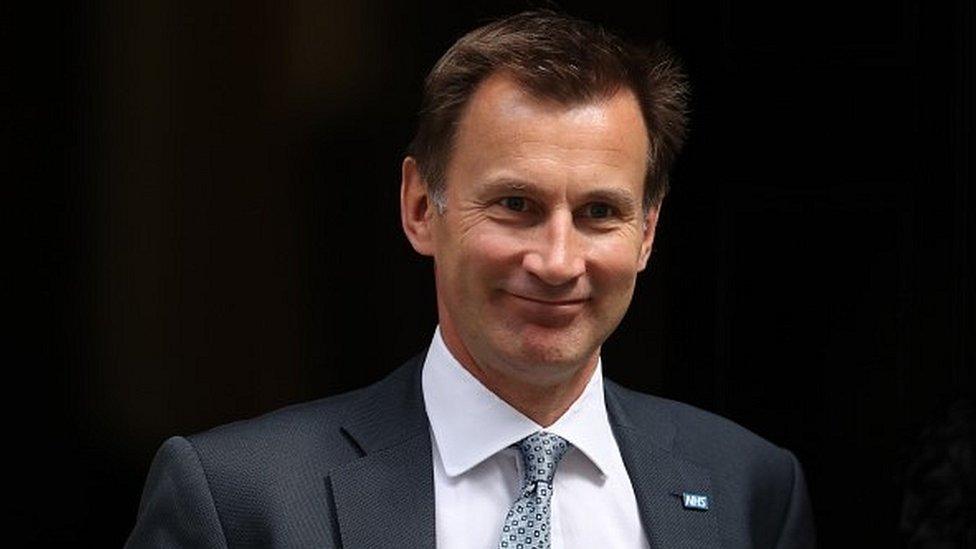Jeremy Hunt wins health role in select committee ballot
- Published

Ex-Health Secretary Jeremy Hunt has been elected to head a committee of MPs which scrutinises the performance of the NHS and government health policy.
Mr Hunt, who stood against Boris Johnson for the Tory leadership this summer, was the longest serving health secretary between 2010 and 2016.
He was among 15 select committee chairs elected in a secret ballot.
Other winners included Tom Tugendhat (foreign affairs), Tobias Ellwood (defence) and Julian Knight (culture).
And former cabinet ministers Greg Clark and Karen Bradley will head the science and procedure committees respectively. A wide range of roles were up for grabs, with briefs ranging from transport to international trade.
Mr Hunt said he was "honoured" to be elected as chair of the health select committee and he would be pressing the government to move quickly to build a cross-party consensus for a funding settlement for care for the elderly.
Allow Twitter content?
This article contains content provided by Twitter. We ask for your permission before anything is loaded, as they may be using cookies and other technologies. You may want to read and before accepting. To view this content choose āaccept and continueā.
Allow Twitter content?
This article contains content provided by Twitter. We ask for your permission before anything is loaded, as they may be using cookies and other technologies. You may want to read and before accepting. To view this content choose āaccept and continueā.
There is a select committee for each governmental department, along with a few additional groups. They are made up of 11 or more members who carry out inquiries and create reports into a range of subjects.
They are seen as one of the most effective ways of holding ministers and civil servants to account.
The chairs of 13 committees, including education and home affairs, have already been named as the candidates for chairman ran uncontested.
Wednesday's elections do not include the intelligence and security committee (ISC) - the head of which is chosen through a separate process, with nominations provided by the prime minister after consultation with the leader of the opposition.
The long-awaited Russia report - into allegations of espionage, subversion and interference in UK democracy - will not be published until a new ISC is established. The timing of the committee's reconstitution is also in the gift of the PM.
Fair representation
Chairs of the committees are elected by MPs at the start of each Parliament.
Parties agree on the allocation of committees between them to make sure the chairs are a fair representation of the make-up of Parliament.
As Mr Johnson and his Conservatives won in December with an 80-strong majority, Tory MPs will chair 17 of them. Labour will head up nine, while the SNP will lead on two.
The biggest competition was for chair of the defence committee, with five Tory candidates vying for the top job.
Ex-defence minister Mr Ellwood saw off competition from Adam Holloway, Robert Courts, James Gray and Sir Bernard Jenkin.
And incumbent Mr Tugendhat won the hotly contested race to head the foreign affairs committee, defeating Crispin Blunt and Bob Seely.
The big Labour contest was for chair of the pensions committee, with Stephen Timms seeing off Debbie Abrahams, Chris Bryant and Karen Buck.